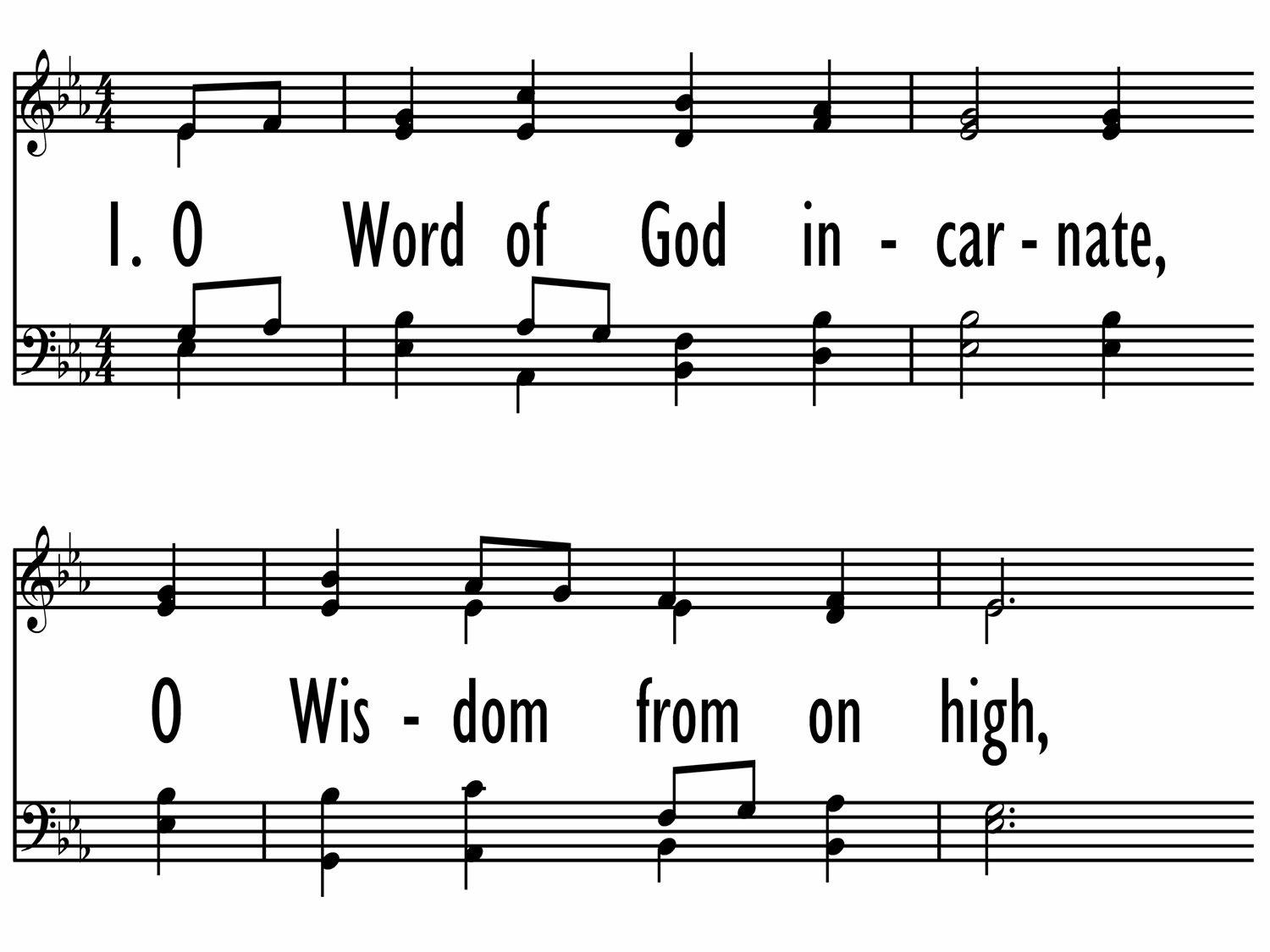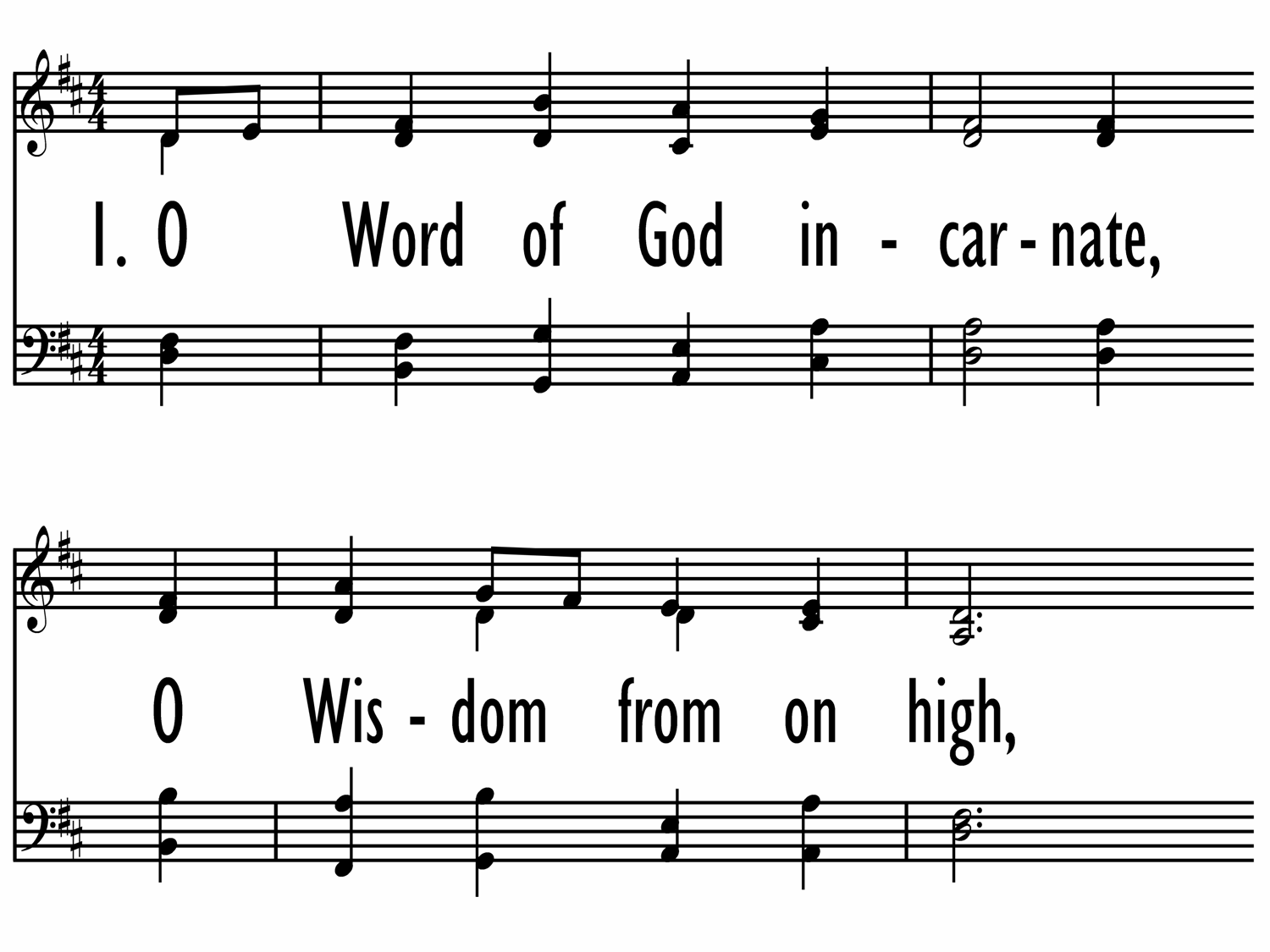- |
User Links
O Word of God Incarnate
Hymn Information
- First Line
- O Word of God incarnate
- Author
- William W. How (1867, alt.)
- Tune Name
- MUNICH
- Adapter and Harmonizer
- Felix Mendelssohn (1847)
- Tune Source
- <cite>Neu-vermehrtes Gesangbuch</cite>, Meiningen, 1693
- Topic
- Mission · Praise of Christ · Testimony/Witness · Unity of the Church · War and Revolution · Elements of Worship: Hearing the Word
Copyright Information
- Text Copyright
- Public Domain
- Tune Copyright
- Public Domain
- Reprint/Projection Information
- Words and Music: The Words and Music are in the Public Domain; you do not need permission to project or reprint the Words and Music.
Full Text
Scripture References
- · · · · ·
Further Reflections on Scripture References
The prevalent image in this hymn is light: God is the Light; his Word is a light for our path; and we, the church, must be a light for the nations. The author, William W. How (b. Shrewsbury, Shropshire, England, 1823; d. Leenane, County Mayo, Ireland, 1897), first published it with a subhead quotation from Proverbs 6:23: "For the commandment is a lamp: and the law is light; and reproofs of instruction are the way of life" (KJV). Some hymnodists have stated that the song is based on Psalm 119:105, which contains nearly the same imagery: "Your word is a lamp to my feet and a light for my path." Using intriguing word play, the hymn praises Christ as the "Word of God incarnate" and as the "Light" who has given us Scripture (often referred to as God's Word) as a "light" ("lantern") to guide the church (st. 1-2) and to inspire it to be a "lamp" for shining God's "light" to all the world (st. 2-3). The text also includes travel imagery: "footsteps" (st. 1), "chart and compass," "voyage" (st. 2), and "pilgrims" (st. 3). Singing this text, we pray that the church, the people of God, will always be led by the Scriptures to seek Christ, to whom the Scriptures point, and to bring the good news of his Word to the nations. This text was first published in the 1867 addition to Psalms and Hymns (1854), a supplementary collection How edited with Thomas B. Morrell.
Bert Polman, Psalter Hymnal Handbook
Confessions and Statements of Faith References
Further Reflections on Confessions and Statements of Faith References
This song expresses our confidence in the truth and power of the word, as taught in Our World Belongs to God, paragraph 32 and Belgic Confession, 7: These scriptures are sufficient for they contain the will of God completely and “everything one must believe to be saved is sufficiently taught in it.”


 My Starred Hymns
My Starred Hymns






